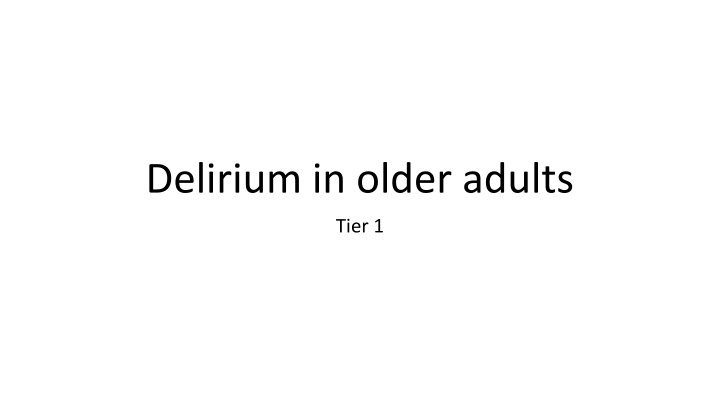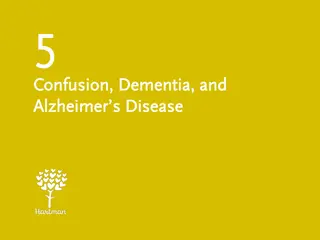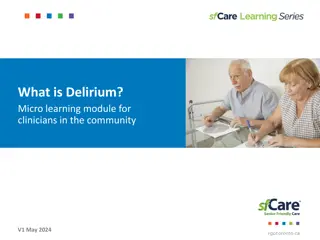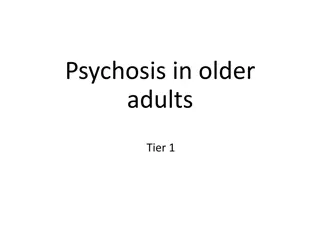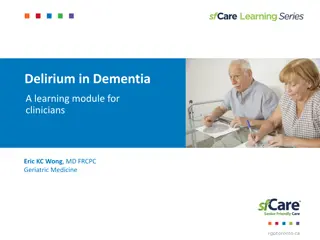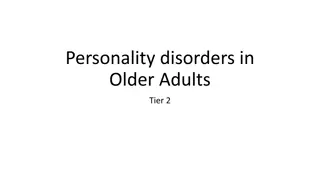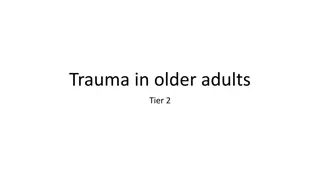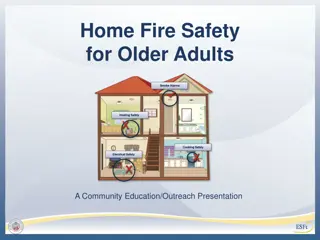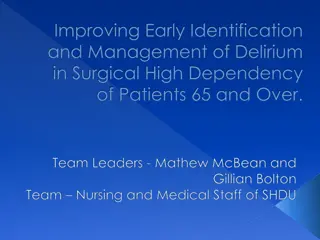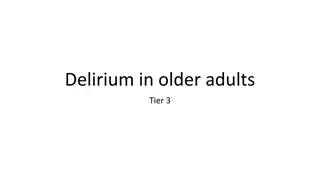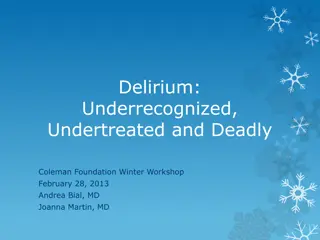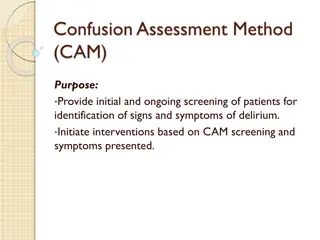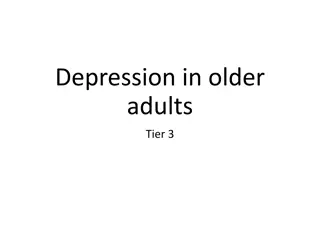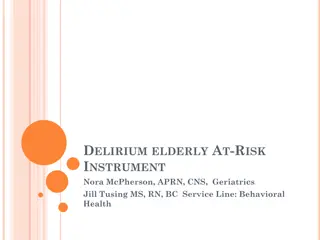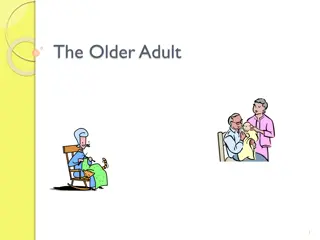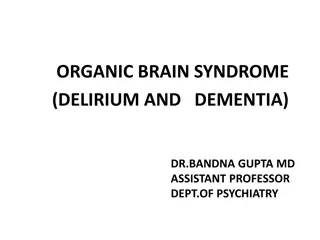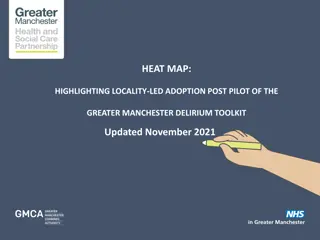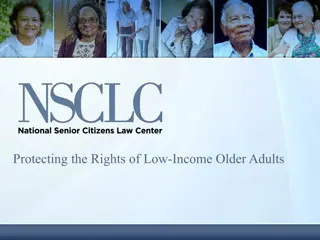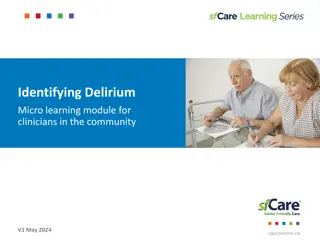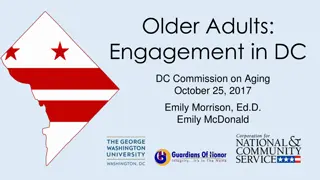Delirium in older adults
Delirium develops rapidly and can be challenging to diagnose. It is crucial to recognize the symptoms, risk factors, and causes to provide timely intervention and support. Learn how to identify, manage, and help individuals experiencing delirium effectively.
Download Presentation

Please find below an Image/Link to download the presentation.
The content on the website is provided AS IS for your information and personal use only. It may not be sold, licensed, or shared on other websites without obtaining consent from the author.If you encounter any issues during the download, it is possible that the publisher has removed the file from their server.
You are allowed to download the files provided on this website for personal or commercial use, subject to the condition that they are used lawfully. All files are the property of their respective owners.
The content on the website is provided AS IS for your information and personal use only. It may not be sold, licensed, or shared on other websites without obtaining consent from the author.
E N D
Presentation Transcript
Delirium in older adults Tier 1
Delirium Delirium develops over a period of 1-2 days Symptoms include Confusion Agitation Personality change Difficulties with understanding and memory. Sometimes referred to as acute confusion It is a serious condition with poor outcomes if not detected and treated early
Risk factors for delirium Advanced age is the most important risk factor Dementia Sensory impairment including hearing and visual People who have had a previous stroke Severe illness Dehydration Surgical procedures Higher rates in adults who are in hospitals and care homes
Causes of delirium Often there is more than one cause Some of the causes are: Pain Infection Nutrition Constipation Hydration Medication Environment This spells PINCH ME
Symptoms of delirium Difficulty following a conversation & easily distracted Vivid dreams or hallucinations, which may be frightening and upsetting Agitation, restlessness Paranoia ( i.e feelings that they are being poisoned, someone is trying to harm them etc) Sleepiness, slowing down & withdrawn Not eating or drinking Confusion which fluctuates often worse in evenings
How can you help ? Recognize when the person has a delirium ( often the diagnosis is missed as not thought of) If you are unsure if there has been a new change in their presentation check with someone who does know them well ( such as their family ) Let the GP know as soon possible if you think someone has delirium so that the cause of the delirium can be found and treated Manage the symptoms of delirium whilst the cause is found Reassure the person themselves as they are often frightened Gentle give repeated reorientation is helpful and avoid confrontation
How can you help? Encourage adequate nutrition / fluids / sleep/ Check they are not in pain Make sure that they are in a room with good lighting, is quiet and with a clock to orientate them. Make sure that any family members who are involved in their care are aware of strategies to reduce the triggers that make the delirium worse. Ensure the person with delirium is safe to be on their own ( prevent injury and complications from delirium ) if they are not safe -summon help such as 111, emergency services.
Prognosis Once the cause gets treated it should start to get better. It can take up to 6 months for delirium to resolve Older adults who have had delirium can remember their experience and recall feeling frightened Delirium can recur in the future Delirium can be prevented
Delirium resources HEE NE > PG Dean > Faculty of Patient Safety > Delirium Project This link has link to animated videos on delirium awareness and on being delirium ready. Patient video (europeandeliriumassociation.org) This is the link to powerful video of what it is like to experience delirium. Delirium leaflet for patients and carers https://www.rcpsych.ac.uk/mental-health/problems- disorders/delirium
